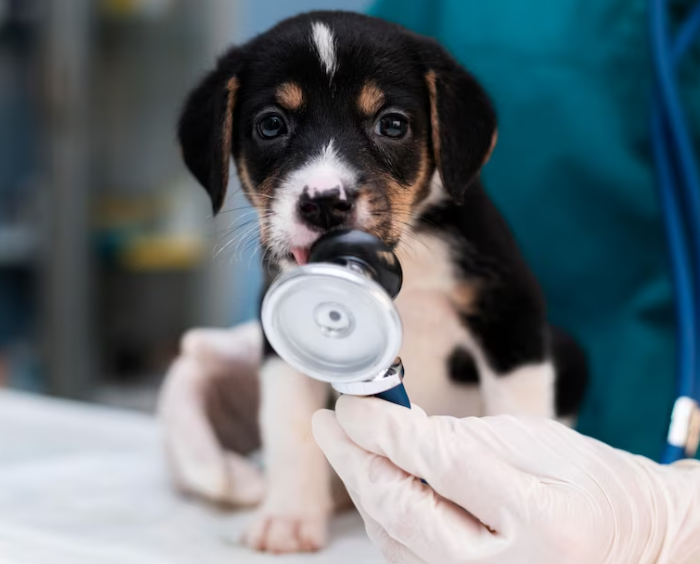2023-07-31
As loving pet parents, we cherish the companionship and unconditional love our paw friends bring into our lives. Whether you have a playful pup or a cuddly feline friend, keeping a keen eye on their well-being is essential to ensure they lead a happy and healthy life.
While most days we spend with our beloved paw family members are full of joy and pleasant experiences, there may come a time when they find themselves in dangerous situations and get hurt. Unfortunately, emergencies can always happen.
As responsible pet parents, it is crucial to be aware of the signs that could indicate a potential emergency situation. Since our pets cannot verbally communicate their feelings, it is our responsibility to be observant and attuned to their behavior and body language.
It can also happen that due to their survival instinct our pets-especially cats, may try to hide their symptoms to not look vulnerable. This requires us to be even more alert and understanding of their needs and know them very well as individuals.
Today, we will discuss some common signs of an emergency situation that our pets may face, and that require immediate veterinary attention. By recognizing these signs in a timely manner, we can take prompt actions and seek veterinary care. This can help save our dog’s or cat’s life or prevent them from having further complications.

Monitoring your pet's vital signs is crucial in recognizing potential emergencies. For instance, for dogs, you should check their heart rate, respiratory rate, and body temperature. A rapid or irregular heartbeat, difficulty breathing, or a body temperature significantly above or below the normal range (around 101-102.5°F / 38.3°-39.2°C for dogs) could indicate a severe health issue.
Cats may exhibit similar signs of distress, including rapid breathing or an elevated heart rate. The average body temperature of our feline friends is about 100.5-102.5°F / 38.1-39.2°C.
Occasional vomiting or diarrhea may not be uncommon, as some dogs and cats can be very greedy. However, if these symptoms become persistent or are accompanied by other symptoms like lethargy, dehydration, or blood in the stool, they could signal a serious underlying issue. Having vomiting and diarrhea can lead to dehydration, which can escalate into an emergency situation if not addressed promptly.
Dogs and cats have different energy levels, based on their breed, age, temperament, and personality. However, regardless of their specifics, pets are generally curious and willing to explore.
If you notice a sudden and drastic change in your pet's activity levels, such as excessive lethargy, unwillingness to move, or a lack of response to stimuli, it may be a sign of distress.
Straining to urinate or defecate, producing little or no urine or stool, or being in pain while attempting to do so, could indicate urinary blockages or gastrointestinal issues that require immediate veterinary attention.
Seizures, characterized by uncontrollable movements or convulsions, and fainting are alarming signs that your pet needs urgent medical care. These episodes may be caused by various health conditions, including epilepsy, toxins, or underlying neurological issues.
Accidents happen, and pets may sometimes injure themselves. However, if your pet experiences severe bleeding that doesn't stop or shows signs of internal bleeding, it requires immediate attention.
Pets are naturally curious and may ingest toxic substances that can be harmful to them. Products that are common in most households like chocolate, medications, certain plants, or cleaning agents can pose significant health risks. If you suspect your pet has ingested something toxic, seek emergency veterinary care immediately.
Always keep in mind that chocolate, especially dark chocolate, and products containing xylitol are very harmful to pets. You may want to secure these products in a place that your dog or cat can hardly access.
Labored breathing, gasping for breath, or persistent coughing could indicate respiratory distress or other serious health problems that require immediate medical attention.
While we all may have already seen dogs occasionally exhibiting this behavior, it can also be perceived as a sign of an anal gland or a bowel movement issue. It may also indicate that your canine has worms. If this behavior does not seem to fade out, you should seek veterinary help.
While an enlarged abdomen may be an issue easy to resolve, that does not pose a risk for your pet’s health, it may also be a sign of a serious health condition such as Cushing’s disease (an illness of the adrenal glands), heart disease, organ enlargement and cancer.
Your paw friend may need to undergo a full physical examination, which includes listening to the heart and lungs and palpating (examination of the abdomen with fingertips).
Low temperatures may not be the only cause of pale gums in our dogs and cats. Having pale gums may be a symptom of dehydration, anemia, parasites, and heart disease.
You should consult with your pet’s veterinarian as quickly as possible, so they can prescribe appropriate treatment that may include medication, supplements, and addressing other accompanying symptoms.

Dogs and cats who are faking symptoms may sound a bit ridiculous...but the reality is that it can happen!
Why would they do that?
Our pets can be very sensitive to all types of changes in their environment. They can mimic our types of behavior just to feel “part of the family”. For instance, your dog may cough because you are coughing. Although such cases are rare, there are reports that prove their legitimacy.
Also, our canines and feline friends may feel depressed just like humans do. If a family member has passed away or moved from home, or if our pets feel neglected in any way, they may exhibit unwanted behaviors.
For instance, lethargy, decreased appetite and inappropriate urinating/defecating may be used by our pets as “tools” to express their emotions.
Even if there is a chance for your pet to fake a symptom, our advice is that you do not take any risks and consult with a veterinarian in any case.
Our pets are beloved members of our families, and their health and well-being should always be our priority. By getting familiar with the signs that may indicate a health emergency, we can act appropriately and responsibly to ensure they receive the necessary care.
Remember, in any situation where you suspect your pet is in distress, it is always better to be overly cautious than neglecting and putting your pet’s health at risk. The quicker we respond to these emergencies, the higher the chances of a positive outcome.